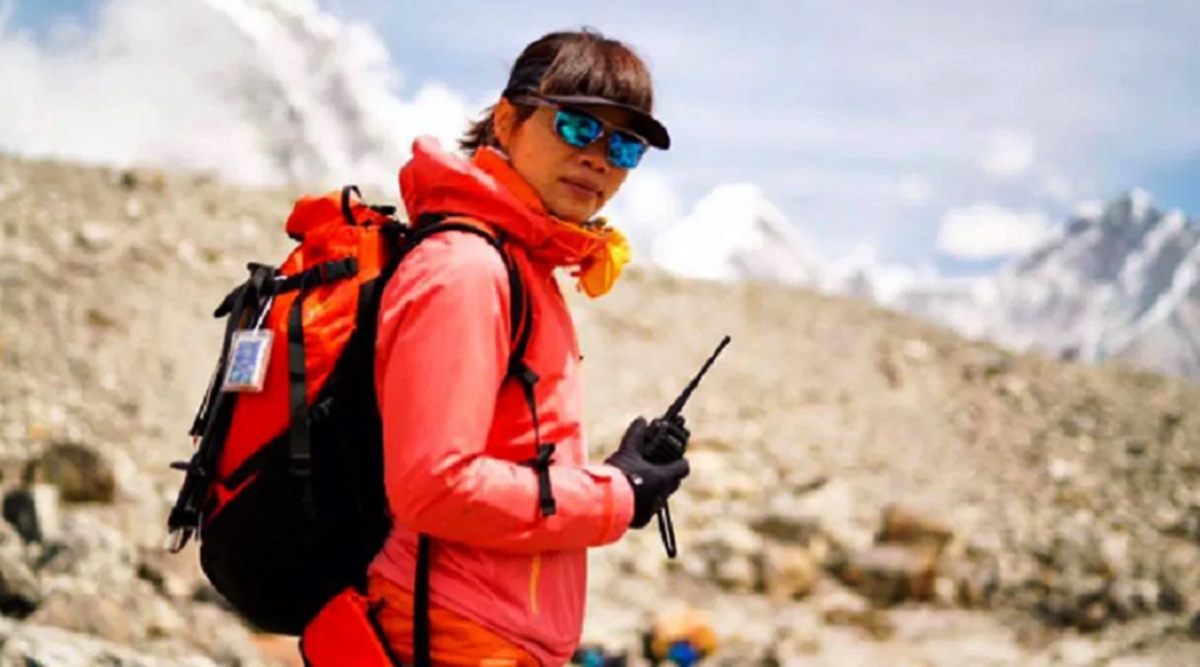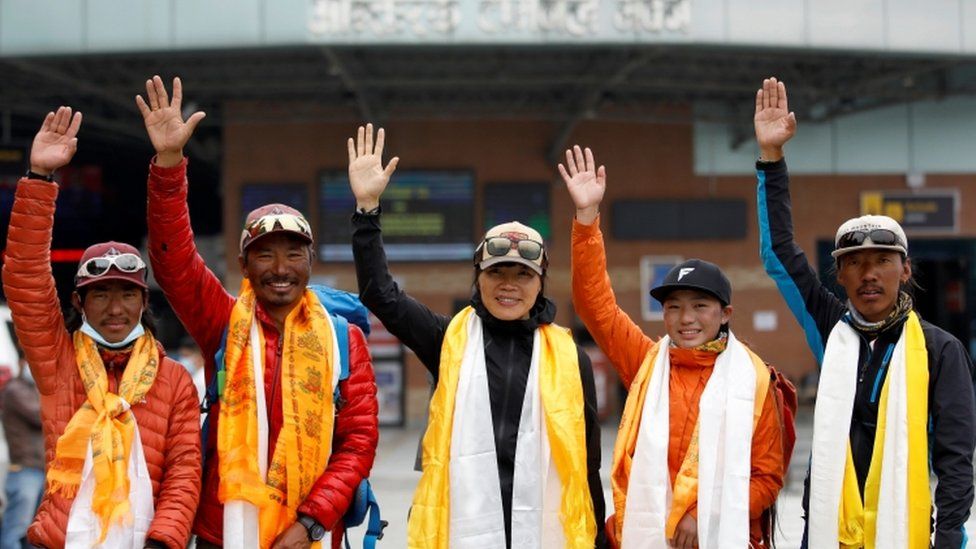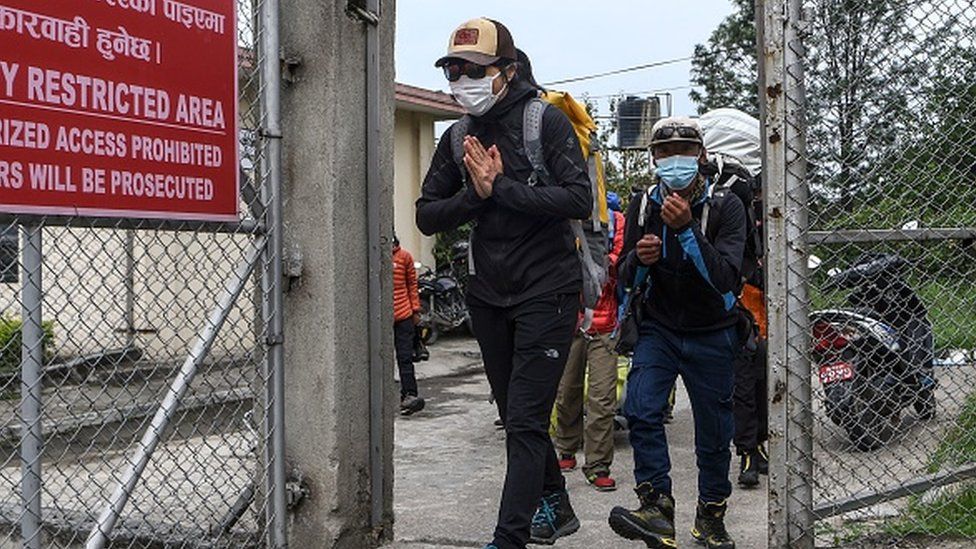“When you aim high, expect high,” Tsang Yin Hung, a former teacher from Hong Kong, told reporters in Nepal.
It is a phrase she often repeated to her friends before recording the world’s fastest ascent of Mount Everest by a woman last Sunday.
Ms Tsang, 45, reached the top of the world’s highest mountain from base camp in 25 hours and 50 minutes.
That was fast enough to beat the previous record, set by a Nepalese climber in 2017, by more than 12 hours.
“I just feel a kind of relieved and happy because I am not looking for breaking record. I just [wanted to] challenge myself,” Ms Tsang told media in Nepal’s capital Kathmandu on Sunday, after safely returning from Everest.

Ms Tsang is one of three climbers who have set new Everest records in recent days.

Last Sunday, Arthur Muir, 75, became the oldest American to climb the mountain, while 46-year old Zhang Hong of China became the first blind man from Asia to complete the feat on Monday.
The record-breakers are three of the hundreds of climbers who have summited the mountain so far this spring.
They have done so despite a surge in coronavirus cases in Nepal and Everest base camp since mid-April.
Nepal’s government reopened Mount Everest to foreigners in April after it was shut last year because of the coronavirus pandemic.
‘I feel relieved’
Ms Tsang made a previous attempt on 11 May, but bad weather forced her to turn back. Determined to make it to the top, she returned a week later.
She left base camp at 13:20 local time (07:35 GMT) on 22 May and reached the top at 15:10 the next day, a Nepalese government official said told AFP news agency.
Usually climbers spend several days in different camps before reaching the peak.

Ms Tsang beat the 2017 record set by Nepali woman Phunjo Jhangmu Lama, who climbed Everest in 39 hours and six minutes.
Ms Tsang attributed the record to her ability, team work and luck. But for her, the record was an afterthought.
“I always tell my working team, my friends, when you aim high, expect high,” Ms Tsang was quoted as saying by Reuters news agency. “So I feel relieved because I can prove my work to my friends, to my students.”
‘A strong mind’ over matter
Mr Zhang reached the top of the 8,849m-tall (29,031ft) mountain a few days after Ms Tsang on 24 May.
The Chinese mountaineer lost his sight at the age of 21 due to glaucoma, an eye condition where the optic nerve becomes damaged.
Mr Zhang, who was born in south-western Chinese city of Chongqing, was escorted to the top by three guides.
“No matter if you’re disabled or normal, whether you have lost your eyesight or you have no legs or hands, it doesn’t matter as long as you have a strong mind,” Mr Zhang told Reuters.